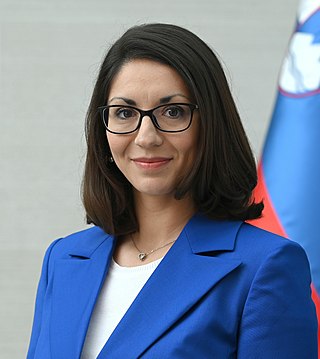Related Research Articles

Yugoslavia was a country in Southeast and Central Europe that existed from 1918 to 1992. It came into existence following World War I, under the name of the Kingdom of Serbs, Croats and Slovenes from the merger of the Kingdom of Serbia with the provisional State of Slovenes, Croats and Serbs, and constituted the first union of South Slavic peoples as a sovereign state, following centuries of foreign rule over the region under the Ottoman Empire and the Habsburg monarchy. Peter I of Serbia was its first sovereign. The kingdom gained international recognition on 13 July 1922 at the Conference of Ambassadors in Paris. The official name of the state was changed to Kingdom of Yugoslavia on 3 October 1929.

Johann Weikhard Freiherr von Valvasor or Johann Weichard Freiherr von Valvasor or simply Valvasor was a natural historian and polymath from Carniola, present-day Slovenia, and a fellow of the Royal Society in London.

Jože Plečnik was a Slovenian architect who had a major impact on the modern architecture of Vienna, Prague and of Ljubljana, the capital of Slovenia, most notably by designing the iconic Triple Bridge and the Slovenian National and University Library building, as well as the embankments along the Ljubljanica River, the Ljubljana Central Market buildings, the Ljubljana cemetery, parks, plazas. His architectural imprint on Ljubljana has been compared to the impact Antoni Gaudí had on Barcelona.

Milan Nedić was a Yugoslav and Serbian army general and politician who served as the chief of the General Staff of the Royal Yugoslav Army and minister of war in the Royal Yugoslav Government. During World War II, he collaborated with Nazi Germany and served as the prime minister of the puppet government of National Salvation, in the German occupied territory of Serbia. After the war, the Yugoslav communist authorities imprisoned him, where in 1946, according to the official version, he committed suicide. He was included in the 100 most prominent Serbs list. There have been attempts since the 2000s to present Nedić's role in World War II more positively. All applications to rehabilitate him have so far been declined by the official Serbian courts.
LibraryThing is a social cataloging web application for storing and sharing book catalogs and various types of book metadata. It is used by authors, individuals, libraries, and publishers.
A bibliographic database is a database of bibliographic records. This is an organised online collection of references to published written works like journal and newspaper articles, conference proceedings, reports, government and legal publications, patents and books. In contrast to library catalogue entries, a majority of the records in bibliographic databases describe articles and conference papers rather than complete monographs, and they generally contain very rich subject descriptions in the form of keywords, subject classification terms, or abstracts.
LIBRIS is a Swedish national union catalogue maintained by the National Library of Sweden in Stockholm. It is possible to freely search about 6.5 million titles nationwide.
Latindex is a bibliographical information system available for free consultation. Established as a network in 1997, the project is based on the cooperation of 17 national resource centers that operate in a coordinated scheme for the gathering and dissemination of relevant information and data on the Iberoamerican journals.

Andrej Gosar was a Slovenian and Yugoslav politician, sociologist, economist and political theorist.
Slovene minority in Italy, also known as Slovenes in Italy is the name given to Italian citizens who belong to the autochthonous Slovene ethnic and linguistic minority living in the Italian autonomous region of Friuli-Venezia Giulia. The vast majority of members of the Slovene ethnic minority live in the Provinces of Trieste, Gorizia, and Udine. Estimates of their number vary significantly; the official figures show 52,194 Slovenian speakers in Friuli-Venezia Giulia, as per the 1971 census, but Slovenian estimates speak of 83,000 to 100,000 people.

The National and University Library "St. Kliment Ohridski" in Skopje was one of the first institutions established by the decision of the Anti-Fascist Assembly of the National Liberation of Macedonia (ASNOM) on 23 November 1944.
Matjaž Mulej is a Slovenian academic. He is a member of the European Academy of Sciences and Arts.
The Australian National Bibliographic Database (ANBD), formerly part of the Australian Bibliographic Network (ABN) and for some years renamed Kinetica, is a national shared library cataloguing network, hosted by the National Library of Australia. It commenced in 1981 in Australia as the ABN, and after a series of rebrandings and added services, has since 2006 been available through Libraries Australia. In mid-2019, Libraries Australia partnered with Trove, and as of June 2020 is set to be co-branded with Trove.
The Special Library of Oncology is a central oncological library in Slovenia. It was established as an Information and Documentation Center of the Institute of Oncology Ljubljana in early 1950s.
The National Library Service of Italy is a Ministry of Cultural Heritage and Activities promoted network of Italian libraries, in collaboration with Regions and Universities, and coordinated by the Central Institute for the Union Catalogue of Italian Libraries and Bibliographic Information.
Denis Trček is a Slovenian computer scientist and university professor.

Predrag Ristić was a Serbian architect and university professor. Ristić was best-known for his works in the domain of sacral architecture.

Blaž Zupan, is a Slovenian computer scientist and university professor.

Slavko Vesenjak is a Slovenian lawyer. He is the author of scientific articles and a lecturer. He has represented several high-profile cases before the Supreme Court and the European Court of Human Rights. He was a member of the National Electoral Commission.

Emilija Stojmenova Duh is a Macedonian-Slovenian electrical engineer and politician. She is the current minister for digital transformation of the Republic of Slovenia.